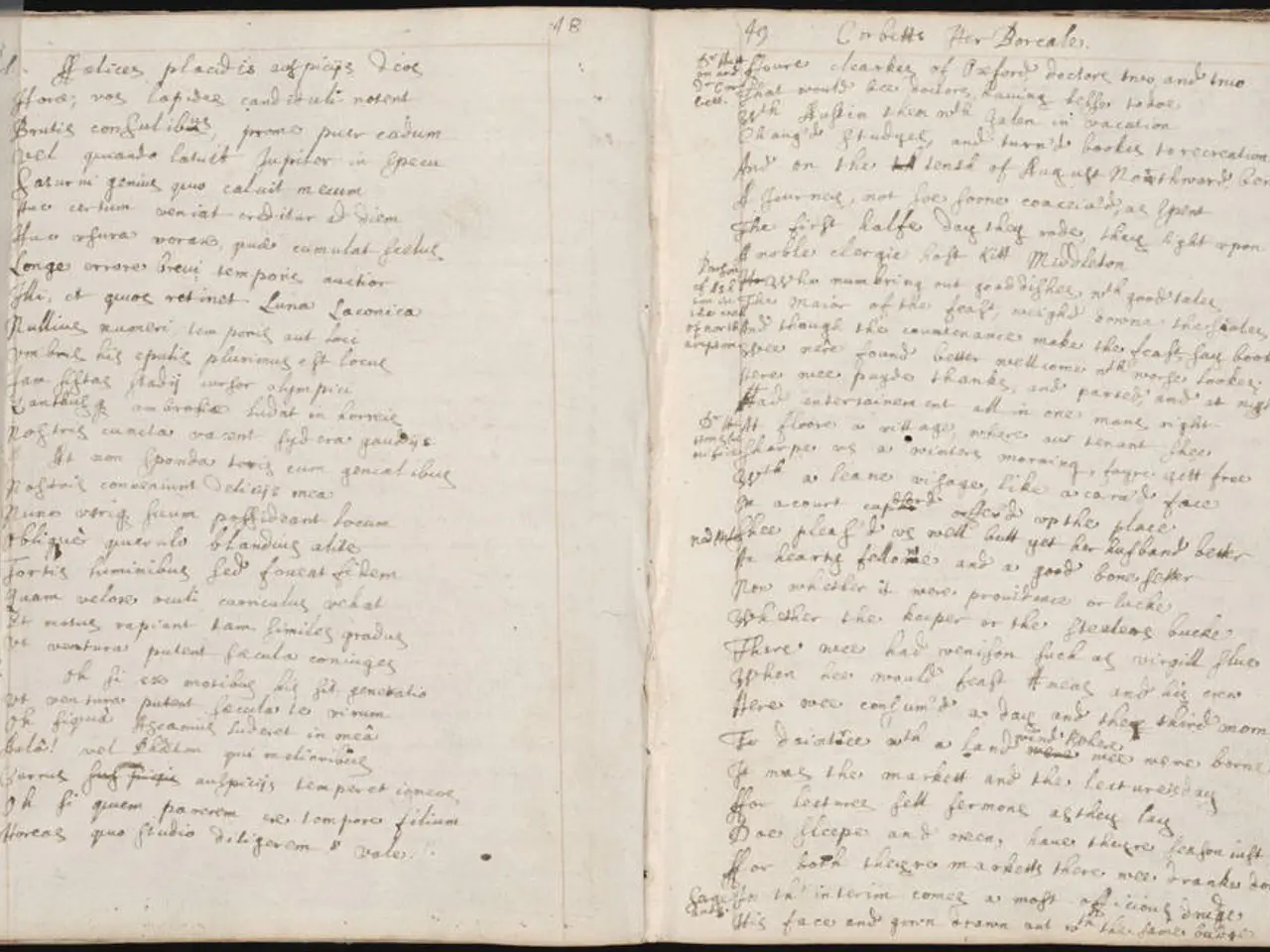Unveiling the Enigma of Composition: Empowering Students to Develop a Passion for Writing
In the realm of education, Mystery Writing aspires to be a beacon of hope for students who struggle with writing, aiming to foster a future of confident communicators ready to express themselves effectively through writing.
This innovative approach to teaching writing helps students continuously practice their skills and better understand their writing process. By engaging their creativity, encouraging structured storytelling, and allowing them to explore character development and plot in a focused, motivating way, Mystery Writing helps students develop confidence in their writing.
At the heart of Mystery Writing lies the mastery of essential story elements such as plot, character, conflict, and resolution. This focus boosts students' imagination and communication skills, leading to increased confidence as they see their stories take shape effectively. Writing mysteries also fosters critical thinking as students plot clues and twists, practicing narrative skills in an engaging format that promotes enthusiasm and persistence.
For teachers, Mystery Writing offers a lifeline. Well-designed mystery writing exercises act as focused projects, helping teachers save time by reducing the need for constant re-direction or individualized brainstorming help. The clear frameworks and prompts provided by Mystery Writing streamline grading and feedback processes, making it easier to track progress and support students collectively.
The benefits of Mystery Writing are twofold. Students gain confidence through creative engagement, narrative structure mastery, and critical thinking. Teachers save time via clear frameworks and prompts that facilitate efficient teaching and assessment.
Lessons in Mystery Writing are designed to be familiar yet offer different subject matter to keep writing interesting. Over the last four years, the team behind Mystery Writing, comprised of former educators, has developed this writing curriculum with input from teachers, ensuring it meets the needs of both students and teachers.
Mystery Writing initially consists of 45-minute lessons at the sentence level, as stated by Ryan Brusco, the Senior Director of Strategy at Discovery Education. Teachers have expressed a desire for a writing curriculum that focuses on teaching writing in a gradual manner, one genre at a time, leading to an overall final project. To cater to this need, Mystery Writing includes genre units separate from the 45-minute essential skills lessons.
However, it's important to acknowledge that some students may still face challenges when it comes to writing, with lack of confidence being the main issue. Mystery Writing is designed to help students overcome this fear of the blank page and achieve a more solid understanding of their writing process.
In essence, Mystery Writing is a tool designed to save teachers time and engage students with 'wow' content, making the process of learning writing enjoyable and effective for all.
- Mystery Writing encourages students to continually practice their writing skills and better understand their writing process, leading to increased confidence in their communication and personal growth.
- By engaging their creativity and allowing exploration of character development and plot, Mystery Writing fosters the mastery of essential story elements such as plot, character, conflict, and resolution.
- Instructors can save time by using Mystery Writing, which offers focused projects, providing clear frameworks and prompts that streamline grading, feedback, and progress tracking.
- Designed to be familiar yet offer diverse subject matter, the Mystery Writing curriculum has been developed by former educators and tailored to meet the needs of students and teachers.
- The aim of Mystery Writing is to help students overcome their fear of the blank page, achieve a more solid understanding of their writing process, and make the learning of writing an enjoyable and effective experience.




